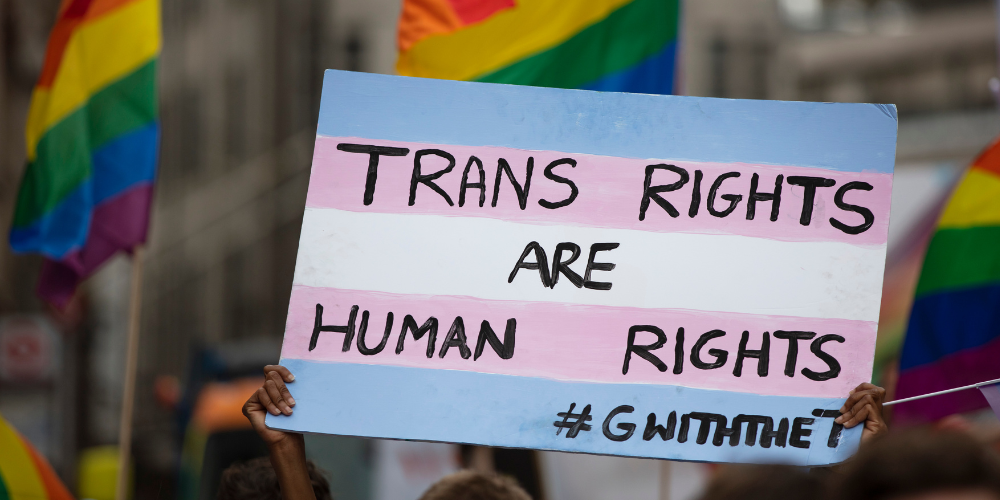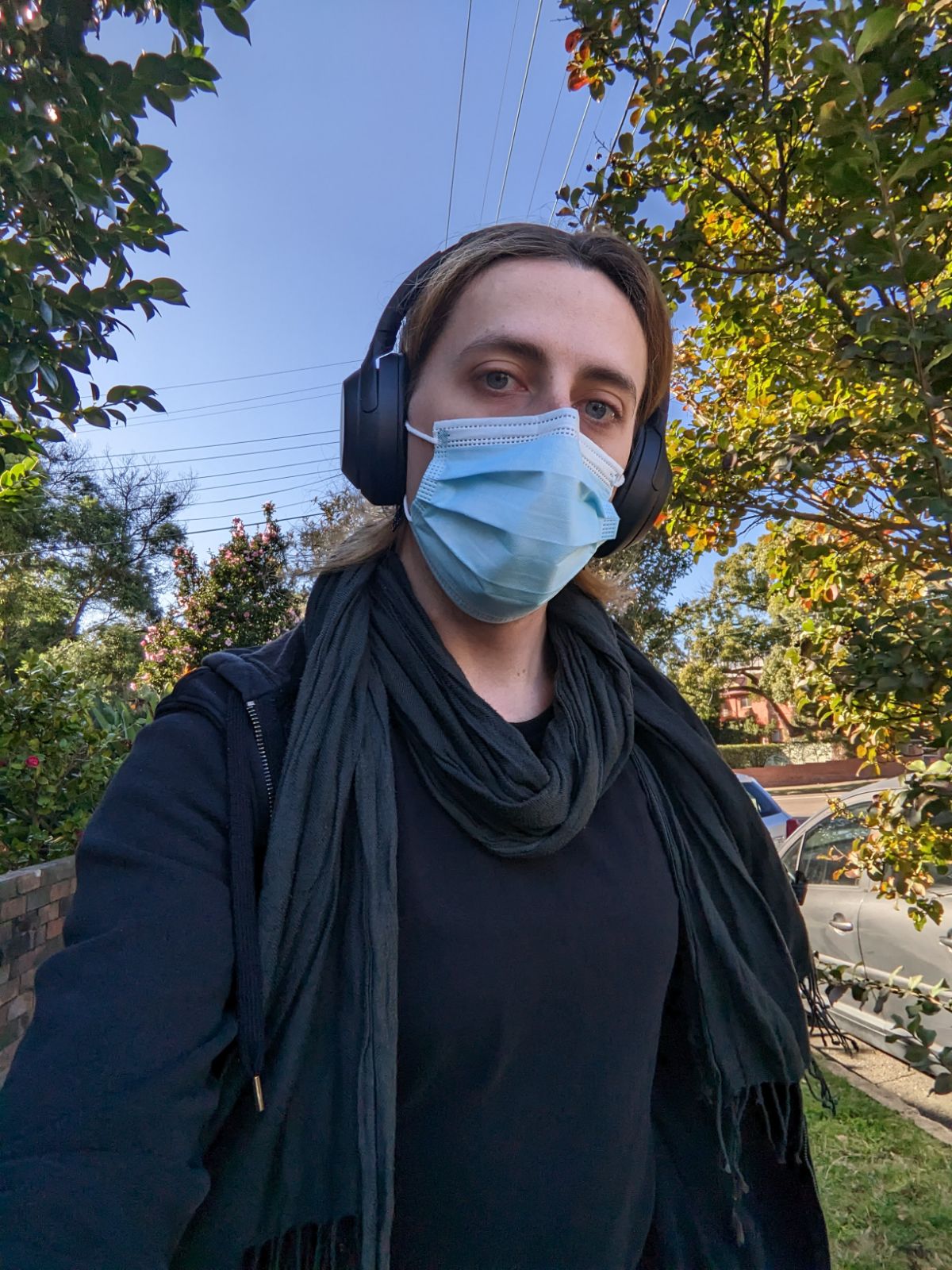Renting & transphobia: NSW renting laws that need to change to support transgender renters
Riley Brooke • 28/05/2023
Sydney recently hosted World Pride – a global celebration of the Lesbian, Gay, Bisexual, Trans, Queer, Intersex, Asexual (and more) community. In early 2023 NSW saw an influx of LGBTQIA+ people from all around the world, to come together for arts, sports, parties, and a Human Rights Conference.
Unfortunately, this has come at a time when the LGBTQIA+ community, and transgender people in particular, have been experiencing escalating levels of discrimination and outright violence, both here in Australia and overseas.
Discrimination pervades many areas of trans people’s lives, including in relation to housing. All people need and deserve a safe, secure, affordable place to call home, but all too often trans people have significant barriers placed in their way which prevent that from being a reality.
If you’re unfamiliar with trans terminologies or want a refresher on trans 101, click here.

Transphobia is on the rise
Reported hate crimes against transgender people in the United Kingdom saw a 56% increase between 2021 and 2022. According to the European Region of the International Lesbian, Gay, Bisexual, Trans and Intersex Association, 2022 saw an increase in both the frequency and severity of violence against the LGBTQI+ community: 2022 was the most violent year on record across Europe for LGBTQI+ people. According to the Transgender Law Centre, there have been 139 reported incidents of fatal transphobic violence in the U.S. since 2017.
Here in Australia, outspoken anti-trans activist Kellie-Jay Keen-Minshull (known as Posy Parker) recently toured, speaking in major cities to crowds ranging from 20 to hundreds about her views on the trans community. Parker’s rhetoric included false claims that transgender women are 'predators' and that transitioning is a 'fetish'. Attendees included at least one sitting MP as well as far-right extremists who performed the Nazi salute.
The Sydney-based Christian Lives Matter hate group has also been escalating its intimidation and violence towards queer and trans communities in recent months. During World Pride, a group of Christian Lives Matter men entered queer venues in Newtown’s King Street to harass and intimidate members of the LGBTQ+ community. In late March, members of the group physically attacked a group of pro-trans peaceful protestors in Belfield.
Transphobic violence doesn’t occur in a vacuum. It reinforces and is reinforced by more subtle forms of discrimination and marginalisation. As put by Anya Zoledziowski in Vice, ‘a twisted feedback loop of anti-trans rhetoric begetting anti-trans policies, and vice versa, has paved the way for more violence against trans people.’
Trans people and housing
Trans Pathways, the largest study on mental health and care pathways of trans young people ever conducted in Australia, found that of the trans young people surveyed, 22% experienced accommodation issues, including homelessness, unstable accommodation and couchsurfing.
Many participants attributed their issues with accommodation or homelessness to their gender identity or gender expression. This includes instances where trans people are rejected from sharehouses on the basis of their trans status, or are forced to leave the family home earlier than they are financially able to do so because of transphobic family members.
The ‘Gender Diverse, including LGBTIQA+’ consultation paper in phase one of the Australian Government National Strategy to Achieve Gender Equality has found that LGBTQIA+ employees report higher levels of exclusion in the workplace, and 39% of LGBTIQ+ people hide their sexuality or gender identity at work.
Given these facts, it is unsurprising that there are material implications for trans people’s incomes and housing outcomes: 42% of transgender women report earning less than $400 a week, which is below the poverty line, and 32% of transgender women have experienced homelessness.
Jeannette’s experience in the Sydney private rental market
Jeanette (pseudonym) is a 30-year-old non-binary trans woman who is a renter. She started transitioning in October 2022.

"For me, the biggest impacts are anxiety around potential repercussions if either the landlord or real estate have negative personal opinions on queer people, and they find out that I’m trans. I still use my deadname* in emails and on the phone with rental stuff, and pretend not to be trans during inspections.
"I feel like there’s such an inherent power imbalance that there’s barely anything stopping them finding a reason to evict us should they decide they don’t want a trans person there.
"It’s hard to know exactly how to fix things [for trans renters] while you’re stuck dealing with it week-to-week. The things that would be good for all renters would be a huge relief for all trans people with the same anxieties as me. Stopping no grounds evictions, and stopping rent increases from constantly pricing us out of everywhere would be nice.
"I think public opinions on trans people are shifting, in good and bad ways. It feels like there’s a lot more awareness and public acceptance these days, but there’s also a lot of people who have become a lot more vocal in opposition to trans people being accepted in society.
"I get harassed in public, and discriminated against at work, just for being visible. That’s definitely a factor in feeling like I need to keep it hidden around the real estate and landlord, just in case."
*'Deadname' refers to the name a transgender person went by before they transitioned. It can be very distressing for some trans people to continue to be referred to by their deadname.
Solutions
Addressing discrimination in rental applications
Trans people can experience additional barriers in the rental application process in the private rental market.
In NSW, and generally across other states and territories, it is unlawful for real estate agents and landlords to discriminate during the rental application process on a number of grounds (including gender identity). Renters who feel their application has been declined on a discriminatory basis can make a complaint. However in practice, especially with how tight the rental market is at the moment, there isn’t much recourse. Where there are dozens and dozens of applications per property, it can be incredibly difficult to prove that an unsuccessful applicant was rejected on the basis of being transgender.
If a trans person’s gender marker on their identity documents doesn’t match up to what the agent or landlord believes the person ‘should’ look like, this can present additional barriers such as invasive requests for further documents to prove identity. Things can become all the more complex if a trans person has gone through the lengthy and expensive process of changing their legal name and/or gender marker on some forms of identification but not others.
There has been increasing automation of the rental application process over recent years. Automated rental application forms can both require large amounts of identification, and be extremely inflexible. This can leave trans people with mismatched identity documents locked out of even submitting a rental application. For instance, a person may be asked to upload a driver’s licence, bank statements, electricity bills, phone bills and an employment contract – but may have different names listed between different documents. This discrepancy may at the very least ‘out’ them as a trans person, opening them up to discrimination from the agent or landlord, but may also result in them being unable to even submit an application at all.
Read our blog Unlawful and lawful discrimination: how the selection process disadvantages some private renters for more information on the ways in which renters are disadvantaged by discrimination, and some of the policy solutions that could help solve this problem: these include increased transparency in how landlords and real estate agents determine the “best” applicant for a rental property, and standardised rental application forms that limit the amounts, types, and storage of data that can be collected during an application process.
Introducing fair limits on rent prices
Australia is in a rental affordability crisis, which is pricing increasing numbers of renters out of the private rental market. As outlined above, trans people earn less money than cis people, and so the lack of affordable homes hits the trans community harder.
People priced out of their homes in this crisis may move into share-houses, move in with family, or be forced to sleep rough, in cars or tents. While nobody should be forced into these situations due to the rental crisis, these options can be more dangerous for many in the trans community. Shared accommodation can be fraught with discrimination, family ties may be strained due to transphobia, and couch-surfing can come with added dangers due to the increased rates of physical and sexual violence against trans people.
Addressing the rental affordability crisis is one key part of ensuring trans people can access a safe, secure home.
Ending no grounds evictions
For as long as no grounds evictions remain legal in NSW, real estate agents and landlords will continue to evict people for “no” reason – which usually means for a very bad reason. Transphobic agents or landlords could feasibly evict a transgender renter once they find out about their trans status, without having to provide any genuine reason. Ending ‘no grounds’ evictions is vital to protecting the renting security of trans people.
Take action
The trans and gender-diverse community is a strong, vibrant community that is experiencing an escalation of violence and hateful rhetoric, as well as a range of systemic barriers to equality.
Many trans people and allies are pushing back and fighting for justice and equality. As just one example, following the March 2023 Belfield attacks, the community came together for a forum at Ashfield Town Hall to talk about solutions to some of the problems impacting the trans community right now, including the rental crisis.
At 2pm on Sunday June 25, at Sydney Town Hall, there will be a RALLY: Trans Rights are Human Rights, marking 54 years since the Stonewall Riots kickstarted the modern LGBTQIA+ rights movement (27 June 1969), and 45 years since Sydney's first Mardi Gras (24 June 1978).
 During the writing of this, the Sydney queer community lost a brilliant, strong, and much-loved transgender activist, Opal. Opal’s ideas and lived experience as a young trans person contributed to this piece. The Tenants’ Union of NSW extends deepest condolences to Opal’s loved ones and to the trans community at this difficult time.
During the writing of this, the Sydney queer community lost a brilliant, strong, and much-loved transgender activist, Opal. Opal’s ideas and lived experience as a young trans person contributed to this piece. The Tenants’ Union of NSW extends deepest condolences to Opal’s loved ones and to the trans community at this difficult time.



